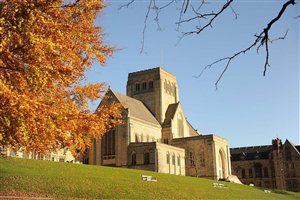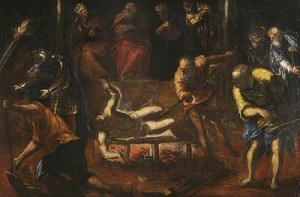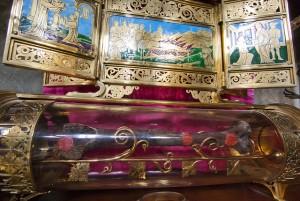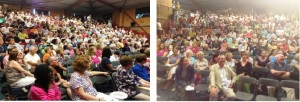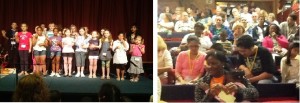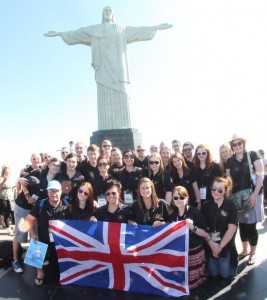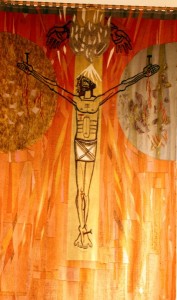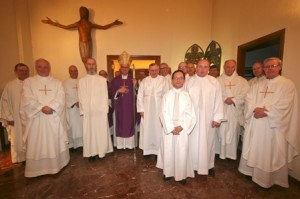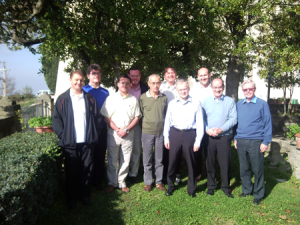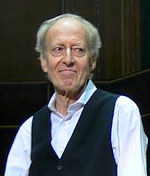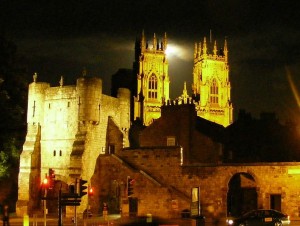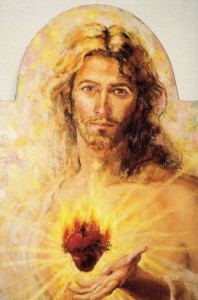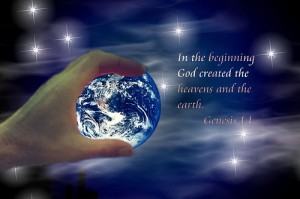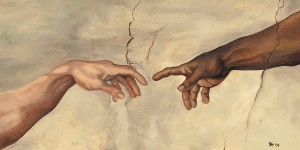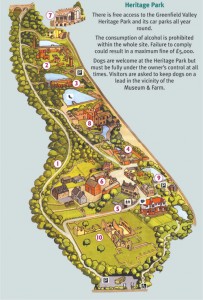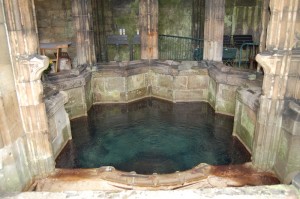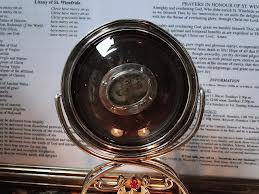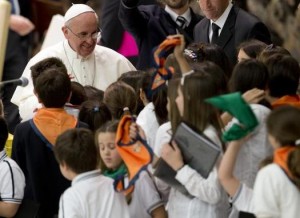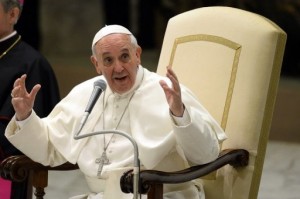Feast of the Assumption 15 August 2013:
Posted by SociusAug 15
Today is our Parish patronal feast day, and a Holy Day in the Catholic Church. Why does the Church celebrate this day with such solemnity? In Catholic Countries, like Italy, Spain, Portugal or the Philippines there are great fairs, processions and joyful gatherings of the people – so why all the joyous feasting? I have just returned from prison after celebrating Mass with a small group of prisoners. Why do we have a special Mass today? What is it all about? All such questions have been buzzing round in my brain, and I tried to explain some of the answers to them. At the end, one said: “I enjoyed that, Father”; for him, it had made sense.
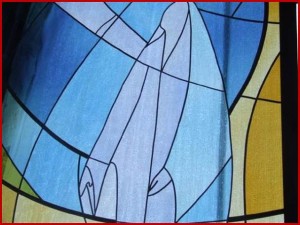 |
Stained glass window in the Church of the Theotokos at Loppiano Italy portraying the Assumption.
(Mary is the transparency that opens up the vision of God for us.)
In plain and simple language, today is a great feast because we celebrate the truth that Mary was taken up into heaven, not just in her ‘spirit’ or ‘soul’ but in her body as well, in a wonderful and mysterious way. We bury, or cremate, people who have died. The body is the ‘container’ (or the ‘matter’), in which the person who died has lived, and loved, and suffered. For that person, earthly life has gone, ended, so we honour the body of the dead person; this is because it is very much a part of who the person was, and is – for us, a ‘temple of the Holy Spirit’, if the person was baptised; potentially so, if the person was not.
There are no remains of Mary’s body on earth, and this is also true for Jesus. Why is this important? To answer, it is because “we believe in the resurrection of the body, and the life everlasting”, (Apostles Creed). The promise made to Mary is also to be fulfilled in us.
The challenge, and the feast day, is one of ‘authenticity’, closely linked to the “Word who became flesh in the Virgin Mary”. Again, referring to the creed: “We believe in Jesus Christ, his only Son, our Lord, who was conceived by the Holy Spirit, born of the Virgin Mary, suffered under Pontius Pilate, was crucified, died, and was buried; On the third day he rose again; he ascended into heaven, he is seated at the right hand of the Father, and he will come to judge the living and the dead”.
To be truly authentic, there can be no ‘double standards’. To be painfully honest, we human beings often have double standards. Our loving (i.e. godly) words, feelings and aspirations do not live up to our actions. All of us Christians are disciples of Jesus, who lives in us by our baptism and daily union with him – something to be worked at daily – yet we fail to be authentic.
The Word is not just the Bible, but the person of Jesus, and furthermore, we have the Word of God in ourselves, as we are created in the Word; our choices, informed by our consciences, show us how and where we respond to the Word, but, when we examine ourselves carefully, we do not always follow the teachings of the Word, or of God. We do not always let the Word of God take over in us, and we fail to become the person we are called to be, born in the Word of God before creation began.
Our task is – should always be – to start again and let Jesus light up his life in us each day. In the present moment, we can live in full union with God (and by God’s grace, these ‘present moments’ can multiply and become a ‘way of life’ for us); how wonderful it is when this becomes the norm of our life; it is how we become fully human. Directly opposed to this letting God’s Word live in us is, of course, the very powerful evil one, who is out to destroy all that is good, all union with God, and all communion and real love between people.
Jesus is “The Word of God”, from above – from heaven – before the creation began; fully human, he suffered, was tempted, and knows what it is to be human, but did not sin. Mary is the perfect disciple: she is from below – from earth – and she, too, is fully human; she also suffered, was tempted and our Catholic Faith also teaches us that, likewise, she did not sin. The “Word of God” grew in her to perfection (if those words are the right way to express it). Always sinless, she achieved perfection in her role as the Mother of God, and – so we believe – it would therefore have been wrong for her to face death and corruption as we ordinary humans do; consequently, she was taken up to heaven in both body and spirit.
It is because of the Word of God – and in the Word of God – that we can be sure of victory. The role of Mary is that of total and absolute unity with the Word, and she leads us to him. She is like a ‘transparent pane of glass’ through which we can have that wonderful view of God. If there was no transparency, we would not see anything. So her role is ‘essential’ in the ‘salvation story’ that God has revealed to us.
We celebrate this feast day, each year, on the 15th August. It is our Parish feast day; we celebrate it joyously because it marks her victory – and our victory; for us, it is Mary’s guarantee that she is the Queen of Heaven and Earth.
Father Jonathan
